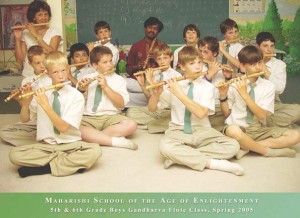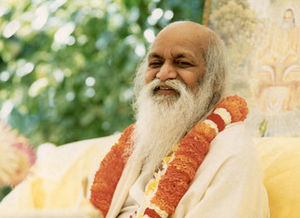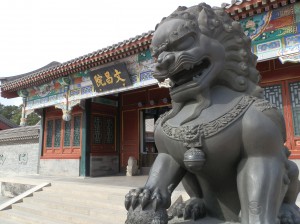 Every once in a while, I am knocked flat by the students in China. They ask for more work on top of the piles I already require. They call journalism heroic because it can really change things. Today, one pointed to Upton Sinclair’s masterwork, “The Jungle,” and the development of U.S. food regulation, saying China needs to follow suit. And some know more than I do about America – such as one today who discussed tensions between the First and Fourteenth Amendments to our Constitution.
Every once in a while, I am knocked flat by the students in China. They ask for more work on top of the piles I already require. They call journalism heroic because it can really change things. Today, one pointed to Upton Sinclair’s masterwork, “The Jungle,” and the development of U.S. food regulation, saying China needs to follow suit. And some know more than I do about America – such as one today who discussed tensions between the First and Fourteenth Amendments to our Constitution.
I’m getting spoiled here.
There are many things to love about teaching in China. I could start with the craving here for my specialty, business and economic journalism. These kids know what matters in the world and they know it’s not sports or entertainment. Every week, 30 motivated students come to class to wrestle with high concepts like comparative advantage and more pedestrian ones such as earnings per share. Each time, they’ve read the several chapters I assigned, as proved by the perfect scores (including answers to extra-credit questions) many get on my quizzes. They ask smart questions that make me think, some sending me to the reference books for answers. They pay attention. They can’t get enough of it all.
I ask them to compare coverage in different publications. Using Power Point presentations graced with artwork – leaves that flutter and drop is my favorite so far – they stand in front of the class and break down stories in such pubs as the Wall Street Journal and New York Times, as well as China Daily, and offerings by Reuters and Bloomberg. They discuss quotes (quality and quantity), numbers and levels of sources, variety in viewpoint. They apply every metric you could imagine, from numbers of paragraphs to the use or lack of use of active verbs. They talk about substance and style alike. Their textual analysis skills could humble Ph.D students in literature.
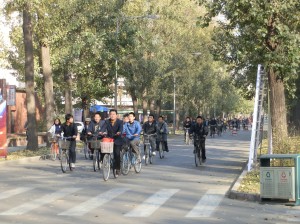 And these students, master’s candidates, do it all with a sense of innocence, earnestness and openness I rarely see in my undergrads at home. Not once have I heard a sarcastic comment. There’s none of the jadedness, boredom with life or cynicism that afflict American post-adolescents. And it’s not that they are naïve: one went undercover as an intern at his newspaper to work for many weeks in the alienating factory environment of Foxconn, a major manufacturer whose mind-numbing workplace culture may have led to a rash of suicides. He got a series of pieces out of it. Others talk of how police have beaten journalists. Still others talk admiringly of instructors whose investigative work has broken new ground in China.
And these students, master’s candidates, do it all with a sense of innocence, earnestness and openness I rarely see in my undergrads at home. Not once have I heard a sarcastic comment. There’s none of the jadedness, boredom with life or cynicism that afflict American post-adolescents. And it’s not that they are naïve: one went undercover as an intern at his newspaper to work for many weeks in the alienating factory environment of Foxconn, a major manufacturer whose mind-numbing workplace culture may have led to a rash of suicides. He got a series of pieces out of it. Others talk of how police have beaten journalists. Still others talk admiringly of instructors whose investigative work has broken new ground in China.
It reminds me of the 1970s idealism that got me into journalism in the first place. Remember those days. We didn’t worry about the Internet. Instead we yearned to imitate Woodward and Bernstein. We weren’t plagued by phone-hacking or the likes of Jayson Blair, Janet Cooke, Stephen Glass and R. Foster Winans. Instead, we wanted to make a difference, tilting our lances against the dark forces. After journalists helped end the Vietnam War, we thought we could change the world.
Now, these kids are not so naïve as to think they won’t face a tough go if they plan to dislodge corruption in high places. They quote editors who’ve told them journalists must move fast to stay a step ahead of the censors. Indeed, the government periodically comes out with lists of topics that no longer can be written about. Chinese journalists don’t seem to compete with one another so much as they do with their official overseers. Maybe the kids know so much about the First Amendment because they lack such a hallowed (and often threatened) guarantee.
There are many other things to love about the kids here. There’s their candor. Consider this email one sent me the other day:
“Dear sir,
On the reporting for assignment 3, i have rewrite the article based on your suggestions, but as my English is not so good as others, so maybe there are still some mistakes in it. Advices is always welcomed and in fact, the more, the better.
I have learned a lot from your class and your detailed notes gave in our homework. So responsible and patient a teacher you are that i am extremely moved by the wonderful work you have did for us.
We love you, dear teacher.
Thanks and best wishes.”
How many American professors get notes like that? I’ve gotten thank-you notes from good, hard-working Nebraska students, but none have touched me quite so much as that one did. Once, too, the students liked a class so much they applauded at the end. How can a teacher not preen a bit? That kind of thing makes you feel like you are making a difference.
This week, I visited another school in Beijing, the University of International Business & Economics. A group of students and I had a wonderful chat on topics ranging from whether China had become too money-hungry and culture-blind (a politely contentious topic among the students) to discrimination against women in the workplace to concerns over American journalists getting smitten with billionaires and losing their feeling for working-class people. Clearly, they were smart, engaged students.
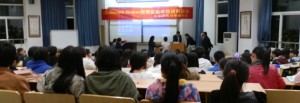 Nor have I ever felt quite as much like a rock star as I did in Chongqing, a sprawling central China city I visited a few weeks ago. Some 80 students – undergrads – turned out for a talk about business and economic journalism at the Southwest University of Political Science and Law. For nearly two hours, we talked about journalism. They broke into applause when I answered “no” to the question of whether I had ever been pressured by a political official over something I wrote. My journalism school at the University of Nebraska-Lincoln is setting up exchanges of students with SUPSL and I hope to host up to five in Nebraska in the spring. I can’t wait to see their reactions to life in the U.S.
Nor have I ever felt quite as much like a rock star as I did in Chongqing, a sprawling central China city I visited a few weeks ago. Some 80 students – undergrads – turned out for a talk about business and economic journalism at the Southwest University of Political Science and Law. For nearly two hours, we talked about journalism. They broke into applause when I answered “no” to the question of whether I had ever been pressured by a political official over something I wrote. My journalism school at the University of Nebraska-Lincoln is setting up exchanges of students with SUPSL and I hope to host up to five in Nebraska in the spring. I can’t wait to see their reactions to life in the U.S.
Finally, there are the personal things. One student who had dug around the Internet found out that I like to run marathons. So last Sunday morning the student and two friends and I set out for a four-mile run around campus. It was the longest distance the kids had ever run and they felt great about it. For my part, I felt great that they did. One pronounced my running outfit “sexy.” It would have been nicer, of course, if that compliment came from one of the girls in the class, but, hey, it’s nice from anyone. Hearing it from a student more than 30 years younger than me is music to aging ears. That’s what happens in China — these kids strike just the right chords.



